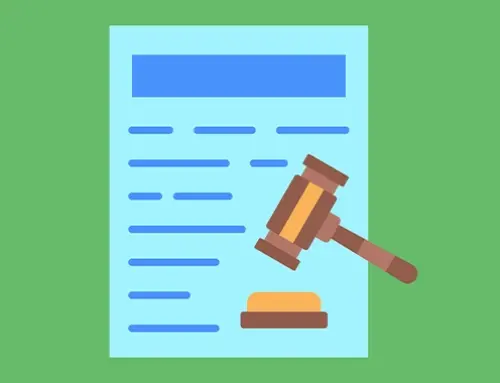Contents
Billable hours in Law Firms
The reality of any job is that you always have to find ways to improve your results if you want to keep getting promoted or earn more money. If you aren’t already aware of the impact of billing methods on a law firm’s performance, we suggest you read this article. In the legal field, it’s no different; there are always ways to increase your billable hours and boost your income as a lawyer. Here are five of them:
Finding ways to increase your billable hours is the key to boosting your income as a lawyer
If you’re a lawyer, one of the most important things you can do to boost your income is to increase your billable hours. Billable hours are the amount of time that you spend on a case that can be billed for by your firm (for example, if it takes an hour for me to draft a contract and another hour for me to review it with my client). The more billable hours I have during a week or month, the more money I’ll make!
If you are to start tracking billable hours you need to:
1.Set a goal
Before beginning any type of tracking system or process like this one, I recommend setting some short-term goals so that once they’re reached you know what needs improvement next time around. This way there’s always room for improvement even though we may think we’ve hit our limit already since we don’t often realize how much time we spend doing non-billable activities such as checking email.
It’s important to set goals for yourself, whether it’s increasing your billable hours or making more money. If you don’t have any sort of target in mind, it will be difficult for you to track how much work you need to do to reach that goal.
As an example: Let’s say that one of your goals is “I want my hourly rate at $200/hour by the end of 2019.” To achieve this goal, what must happen? Well first off–you need to know how much time is spent on each case. Then multiply those numbers against what clients are paying per hour and now you have an idea of where things stand financially.
2.Adopt a time-management system
To be effective, you need to know where your time goes. This means using a time-management system that is both easy to use and gives you insights into what’s working and what isn’t.
A good example of such a tool is RunSensible, which has features like:
- Time tracking: So you can see how much time was spent on each task
- Billing tracking: To help ensure that all billable hours are accounted for
- Client management: To make sure everyone pays their bills on time
- Project management: So you can see how much time was spent on a case, what tasks are left, and when they should be completed.
Time-tracking software like RunSensible allows you to track the time you spend on tasks more accurately and gain insights into where your time goes so you can make better business decisions.
3.Increase your hourly rate
If the first two tips don’t work for you, consider raising your hourly rate by 15%. This is a great way to increase both your billable hours and income. It’s important that you track all of your hours so that you can know exactly how much time it took for each task in order to properly bill out those tasks.
If you’re looking for a more detailed breakdown of how to bill your clients, check out this post from Runsensible. It covers everything from creating timesheets and time tracking on cases to the benefits and features of legal billing apps and much more.
4.Hire help
Hiring a virtual assistant and/or a paralegal can be an excellent way to increase your billable hours. A virtual assistant can do things like schedule meetings, research information, draft letters and documents (including legal briefs), and coordinate with vendors. They’re also great at keeping track of all the details that are essential for running your practice but don’t necessarily require legal expertise. They can help with tasks like keeping track of billing info or responding to client emails.
Paralegals usually have more experience than legal assistants in specific areas such as litigation support or bankruptcy law; they may also be able to assist with document review projects if you need help reviewing documents before filing them in court or submitting them to opposing counsel during negotiations. If you’re looking for someone who has more experience handling complex matters such as tax issues or estate planning matters then it might make sense to hire an attorney instead; however attorneys tend not only to cost more money but also take longer because they need additional training before being able to handle certain types of cases effectively (i..e., tax law). For a more detailed breakdown of the benefits of hiring help, make sure to check out this article.
5.Earn more by charging a flat fee for certain services
If you are a lawyer, you probably know that charging by the hour is the most common billing method. But what if your client wants to pay more upfront?
That’s where flat fees come in handy. A flat fee is an amount of money agreed upon in advance by both you and your client, which will cover all costs associated with a certain task or case during its duration. For example: “I will prepare an answer to interrogatories for $2000.” This type of agreement saves both parties time and money because there’s no need for negotiation down the line about how much should be paid based on how many hours were put into the task at hand–everything has already been determined ahead of time!
The best types of work for flat-fee arrangements include those tasks that have set parameters or specifications require specialized expertise, involve multiple steps but don’t require continuous effort throughout their duration, don’t require direct supervision from legal counsel; are not subjectively judged by either party involved (e.g. drafting agreements), can be completed within hours instead days/weeks, etc. And do not require frequent contact between parties during the process execution stage(s).
Billable hours are more important than you think
Billable hours are a measure of how much time you spend on billable tasks. As a lawyer, it’s important to keep track of your billable hours so that you can see how much money you’re making and where your time is going.
A good CRM like RunSensible makes this possible by keeping track of all of the tasks that make up your day-to-day work as an attorney: client meetings, drafting documents and emails, and researching cases or statutes. It also allows you to record information about each case so that when it comes time for billing purposes later in the month or year, there won’t be any confusion about what needs to get billed out at what price point based on its complexity level.
Conclusion
The key to boosting your income as a lawyer is to increase your billable hours. If you want to make more money, then you need to spend more time doing work that generates revenue for your firm or clients while also keeping track of those hours. This means setting goals, adopting time-management systems, and hiring help if necessary; but it also means charging more than just hourly rates!
FAQ
1. What are the most important things I can do to increase my billable hours?
The most important things you can do to increase your billable hours are to:
1) Research your case thoroughly and get to know your client’s wants and needs.
2) Work quickly and efficiently to create high-quality documents.
3) Stay up to date on changes in the law and how they could impact your case.
4) Negotiate aggressively and get your client the best possible deal.
2. What are “billable hours”?
Billable hours are the amount of time that you spend on a case that can be billed for by your firm (for example, if it takes an hour for me to draft a contract and another hour for me to review it with my client).
3. What is RunSensible?
RunSensible is a CRM system designed for law firms that helps lawyers earn more while doing less. By using RunSensible you can see how much time you’re spending on each task, and how that affects your work as a whole. It also has features like matter management, billing tracking, and client management, which help you stay organized and ensure that your bills are paid on time.
4. Is a virtual assistant a good way to increase my billable hours?
Yes, a virtual assistant can be an excellent way to increase your billable hours. A virtual assistant can do things like schedule meetings, research information, draft letters and documents (including legal briefs), and coordinate with vendors.
Disclaimer: The content provided on this blog is for informational purposes only and does not constitute legal, financial, or professional advice.








